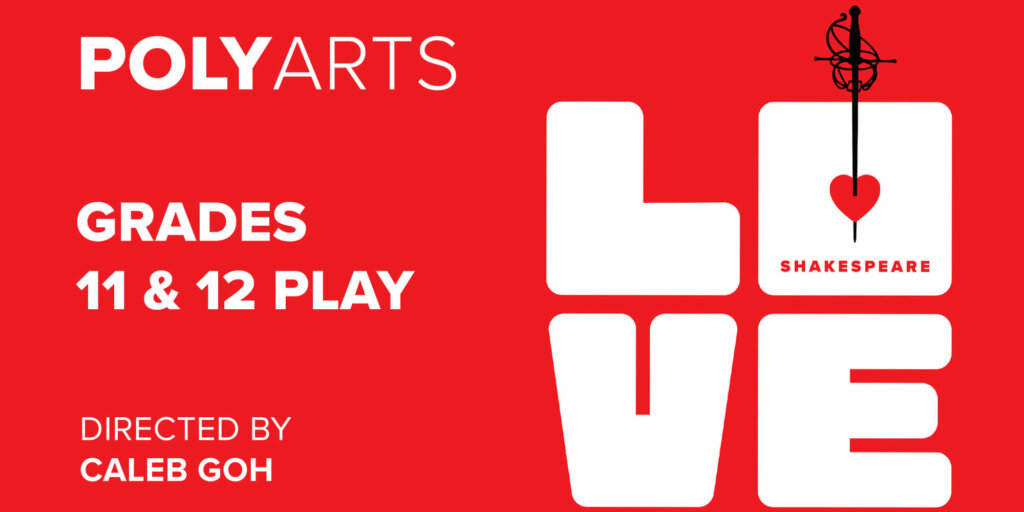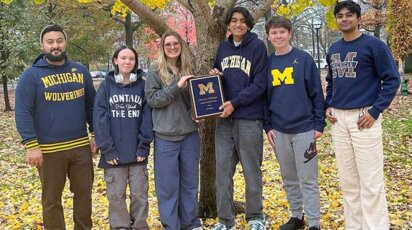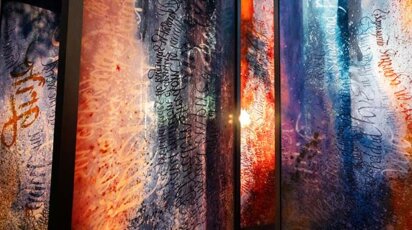News
The upcoming Grades 11 and 12 play, Love Shakespeare, offered challenges unlike any other Upper School production, beyond learning the language of the Bard of Avon.
Director Dr. Caleb Goh, cast, and crew had to pivot from an in-person theater production, to a possible theater in the park, and then to the final filmed production, which will be presented on November 20.
The 10 scenes, each with two actors, are a sampling of the epic love stories, comedies, and heartbreaking tragedies from the comedies, The Merchant of Venice, Much Ado About Nothing, A Midsummer Night’s Dream, Twelfth Night, Measure for Measure, and Taming of the Shrew, and the tragedies, Hamlet, Romeo and Juliet, Othello, and Macbeth.
Getting to the final production took the combined talents of Dr. Goh, costume designer Hannah Chalman, scenic designer and videographer Andrew Murdock, lighting & sound designer & technical director David Higham P’07 and a cast of Grades 11 and 12 students.
Rising to Unique Production Challenges

“Directing this piece has been very tricky,” said Dr. Goh. “I have had to use a whiteboard on Zoom to draw stage settings and to reveal blocking to each performer while intricately detailing exactly where they are positioned at any given moment during each scene. All rehearsals have been virtual until two weeks before filming, so it was imperative that each performer knew what they were doing—and staying safe proximity-wise—when they eventually arrived to work their scenes in person.”
“The biggest challenge,” said Dr. Goh, “was trying to ensure safety protocols were in place for all involved as well as to take audience attendance and weather changes into consideration. As the months wore on during production, it became evident that the likelihood of wet weather, or extremely cold temperatures might make an outdoor performance untenable. I wanted to offer a different avenue for artistic expression through the Grades 11 and 12 production. That was when the notion of making it an on-location, filmed play came to mind.
Virtual and Socially Distanced Rehearsals
Charlotte Knutsen ’21 took on the roles of Lady Macbeth (Macbeth) and Helena (A Midsummer Night’s Dream). “I’ve never performed in a Shakespeare production before, so I’m very excited to do my first!” she said.
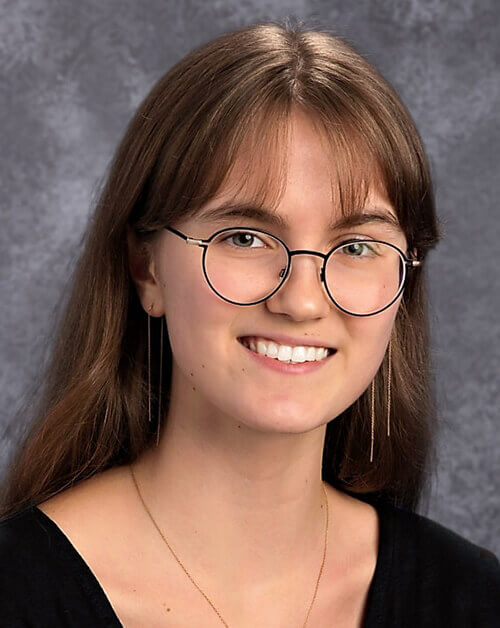
Rehearsal was challenging. “The worst part about virtual rehearsals,” Knutsen said, “is the difficulty of fully committing to the text while sitting at my desk—some of the comedy is very hard to do with the handicap of being seated and removed temporally from the other person in the scene.”
“When performing for a camera instead of an audience,” she said, “it’s harder in that you can’t feed off of the energy of the audience, so it feels a bit different. When doing comedy, especially, the laughter—or lack thereof—of the audience is a vital way to understand which parts of a scene work or don’t work. However, acting for a camera can be seen as ‘better’ because you have multiple chances to get a take you’re happy with.”
“This experience has changed my conceptions of what constitutes a show,” Knutsen said. “I now realize that the only real necessary components are the cast—and the director.”
“In one of my scenes, I had never even met my partner in person so it was really hard to connect with him.”
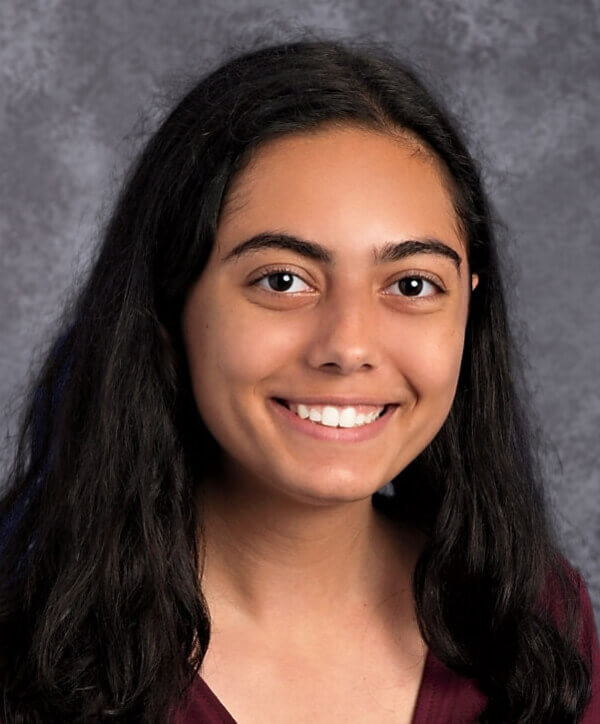
In her fourth production at Poly, but first Shakespeare production, Samantha Rodino ’22 is performing in two comedic scenes. “I play Beatrice in a scene from Much Ado About Nothing and Isabella in a scene from Measure for Measure.”
“What’s really difficult about virtual rehearsals is connecting with your scene partner,” Rodino said. “In one of my scenes, I have never even met my partner in person so it’s really hard to connect with him.” She was looking forward to beginning socially distanced in-person rehearsals that day.
“Personally, I prefer film than live because you can fix your mistakes,” Rodino said. “On stage, you can’t stop and then start a scene over. You need to keep going and improvise if you have to. I am horrible at improvising. I am also looking to have a future career in filmmaking.”
How has the experience helped the students develop as actors? “This has definitely helped me as an actor,” said Rodino, “because I needed to adapt to positions that I wasn’t familiar with. Virtual rehearsal is new for all of us in the cast and crew of Love, Shakespeare, so I feel like we’ve all grown from this experience.”
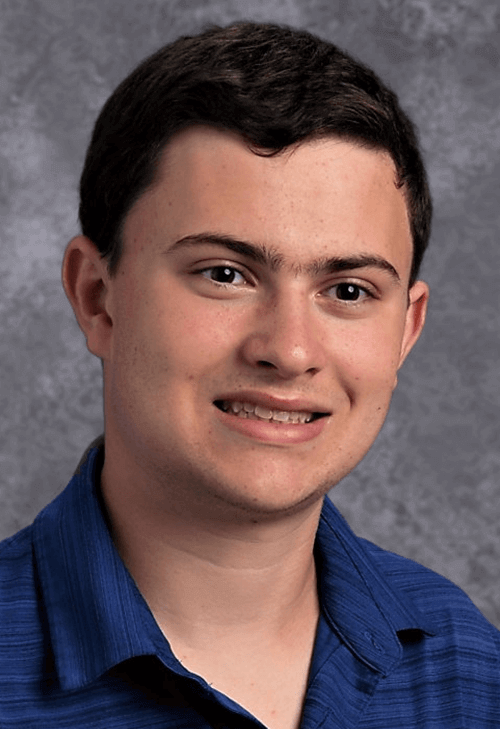
Robert Magnus ’21 plays Macbeth in Macbeth and Petruchio in The Taming of the Shrew. “I have been in four other Shakespeare shows in the past: Midsummer Night’s Dream, Romeo and Juliet, Comedy of Errors, and Macbeth,” he said.
“It has been hard to memorize my lines with my fellow actors and blocking with the limited amount of in-person and virtual rehearsals,” Magnus said. “Instead of practicing something over and over again to ensure great performances on the stage, most of what makes up a scene happens last minute during filming—some blocking, costumes, the set, etc.”
Asked how the experience has helped him grow as an actor, Magnus said, “This experience has required me to work more independently in order to put on a great performance as opposed to the more collaborative approach that a live show would go through.”
Costume Design
Hannah Chalman designed costumes for all 10 scenes. “I was very lucky to assist Toni-Leslie James on Othello at Shakespeare in the Park as Assistant Costume Designer,” said Chalman, “and it has served, like all truly great costume designs, as an inspiration. It also, thankfully, gave me a bit of a head start on knowing where to source specific items in the city! At the beginning, I was taking what I was learning from Ghost Stories and applying it to Love, Shakespeare. One of the key elements that I saw was that we tended to lose a lot of ‘depth’ in filming through Zoom so I designed Love, Shakespeare with a lot of texture and color. Now that we’re filming in person, I’m even more excited to see the final result. The viewer will get to see a lot more of the details that on Zoom might have just blended into the larger picture.”
“I hope viewers will see a certain type of joy and self-assurance in the students.”
How does a designer create costumes for actors she has not met in person? “Measurement forms were sent digitally to students for them to complete,” said Chalman, “instead of having a time where we meet. I’ve also been using those measurements as my primary source of fitting for costumes. For Love, Shakespeare, I’ve chosen to simply have backup options. It’s been a bit more planning than usual because I want every student to have a positive, easy experience without causing anyone stress. On the other hand, it’s been really magical to see just how willing everyone is to adapt to these new times and really put their best work forward.”
“I hope viewers will see a certain type of joy and self-assurance in the students,” Chalman said. “I want these costumes to help ground them in these characters, which when seeing only a small slice of a scene can feel nebulous, and to help provide the students with confidence. I want this to be a fun process that still feels special even if we are all socially distanced. For Love, Shakespeare, we need to see a character very quickly; the scene has to be able to start and the viewers need to recognize the character’s essence. For me to do this, I not only thought about each scene as its own, but also as the Love, Shakespeare world as a whole. So while each scene is a duet of both acting and design, the entire show should also feel cohesive.”
Set Design & Filming
Filming the production of Love, Shakespeare was the plan from the start of rehearsals, said Andrew Murdock, scenic designer & videographer. “We decided that pre-recording the shows made the most sense because it allowed us time to curate the show more akin to setting the stage, building the set, etc.,” said Murdock. “We are also bound to rehearse outside or at home and cannot have a live audience due to COVID-19. So it was largely a practical reason, but it does open up new doors for creativity.”
Asked about the process, Murdock said, “We are trying different things out. This process feels like a combination of traditional film-making process and Shakespeare in the Park. We are recording everything over one weekend, utilizing the beautiful campus, and one ‘indoor’ scene under a tent outside. We are actually avoiding green screen this time to minimize editing time. Although, if it rains, we may have to shoot some of the scenes in front of a green screen.”
Murdock explained that they are allotting a couple hours of filming per scene to get the final approximately four minutes per scene. “Shakespeare is tough!” said Murdock, “But lucky for me the actors have been great; spending a lot of time on their lines and working with Dr. Goh on the blocking before we shoot. The more prepared they are before filming, the easier the process.” He added, “For Love, since we are hoping to not use green screen this time around, I will just be using Premier to edit. I enjoy switching between different processes and this year has definitely kept me on my toes.”
Under normal circumstances, David Higham is responsible for lighting, sound, and stage management for our productions. “My work load in those areas is much diminished and I have been more involved in helping to coordinate the work for Andrew and Hannah,” said Higham. “I have also been responsible to provide the camera, sound and lighting equipment for the shoots of the scenes we have done on campus. It has, as normal, been a great opportunity to work collaboratively with all the other artists including the directors and the ever talented student actors. It is really interesting to watch the students deal with the demands of working in the different medium of film/video and as usual they rise to meet the challenge.”
A Different Kind of Fall Performing Arts Season
“Our commitment to producing a full theatrical fall season for our students, within the circumstances of our impacted COVID-19 safety practices, continues to be achieved through the skillful and creative problem-solving of our production teams,” shared Michael S. Robinson, Head of Arts. “Each of this season’s productions has its own unique style, and we’ll take what we’ve learned from each show as we plan for future productions.”
“Understanding a theatrical setting is one thing. Understanding a film setting is another. Every performer has taken to the task and has been stellar in working out those differences.”
Dr. Goh added, “It may not be in the theatrical platform that they are familiar with, but overcoming new challenges and problem-solving is at the core of what makes theatre education so important. Every performer learned how to express creatively and develop their own voice and mode of expression. They will emerge from this new and challenging circumstance stronger, more resilient, and with a new perspective on performance and life.”“It truly has been a learning curve for everyone,” Dr. Goh continued. “Understanding a theatrical setting is one thing. Understanding a film setting is another. Every performer has taken to the task and has been stellar in working out those differences.”
Register to Watch the Performance
Whether it is the star-crossed romance of Romeo & Juliet, the mischief and magic of A Midsummer Night’s Dream, the guilt and conflict within his anti-heroes, Hamlet and Othello, or the witty repartee between lovers in Much Ado About Nothing and The Taming of the Shrew, Shakespeare has managed to tell epic stories of triumph, heartbreak, jocularity, and love, with artistic flair, linguistic prowess, and theatrical chutzpah.
Register to view the virtual presentation on Friday, November 20 at 7:00 PM for these classic scenes connected by the theme of love.

